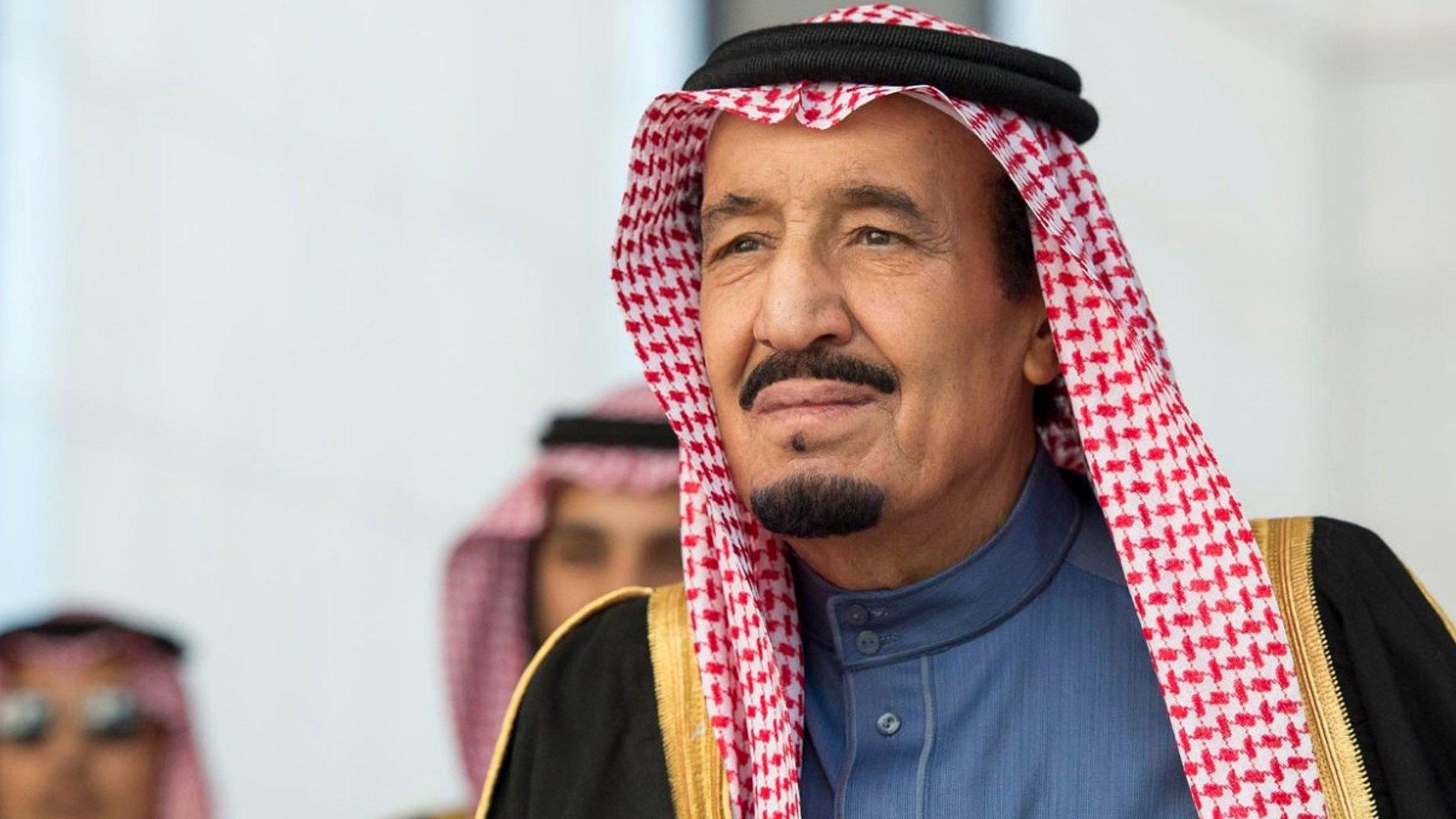Saudi king visits Indonesia with 'cars and entourage'
- Published
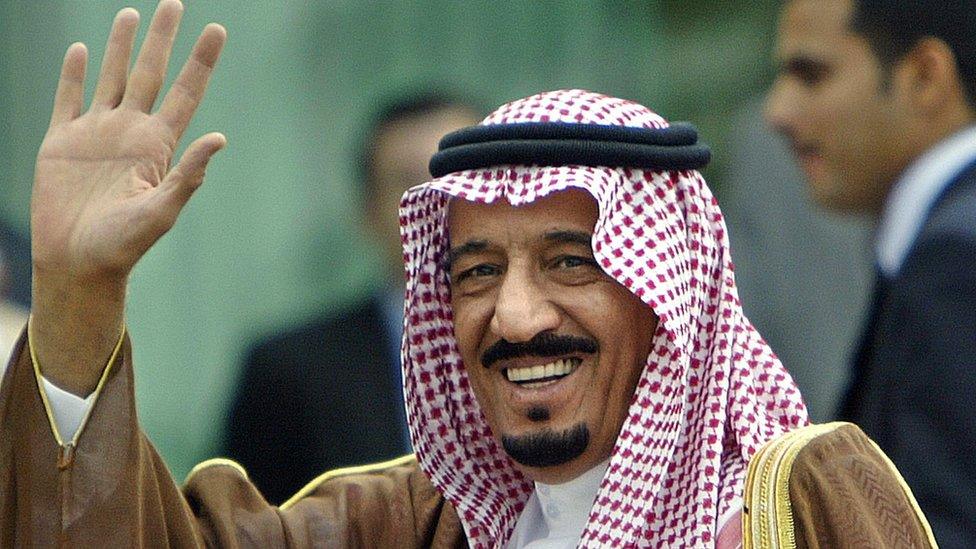
Saudi Arabia's king is visiting Indonesia for the first time in 47 years. And while his official business in the world's largest Muslim-majority nation is receiving a lot of attention, so is the holiday to Bali and the luxury goods going with him.
King Salman bin Abdul Aziz al-Saud is in Jakarta from Wednesday as part of a month-long Asia tour that includes Malaysia, Brunei, Japan, China and the Maldives.
BBC Indonesian's Christine Franciska takes a look at why people are fascinated by the royal visit.
He's bringing luxury cars and a huge entourage
King Salman will come to Indonesia with 459 tonnes of equipment, including two Mercedes-Benz S600s and two electric lifts, Indonesian media reports said.
Airfreight firm PT Jasa Angkasa Semesta, which said it had been appointed to handle the king's cargo, told Antara news agency that 63 tonnes would be unloaded in Jakarta and 396 tonnes would be brought to Bali.
There will be 620 people coming as part of his entourage as well as 800 delegates, including 10 ministers and 25 princes.
It will take 27 flights to transport them all to Jakarta and nine flights to get them to Bali, the freight firm said.
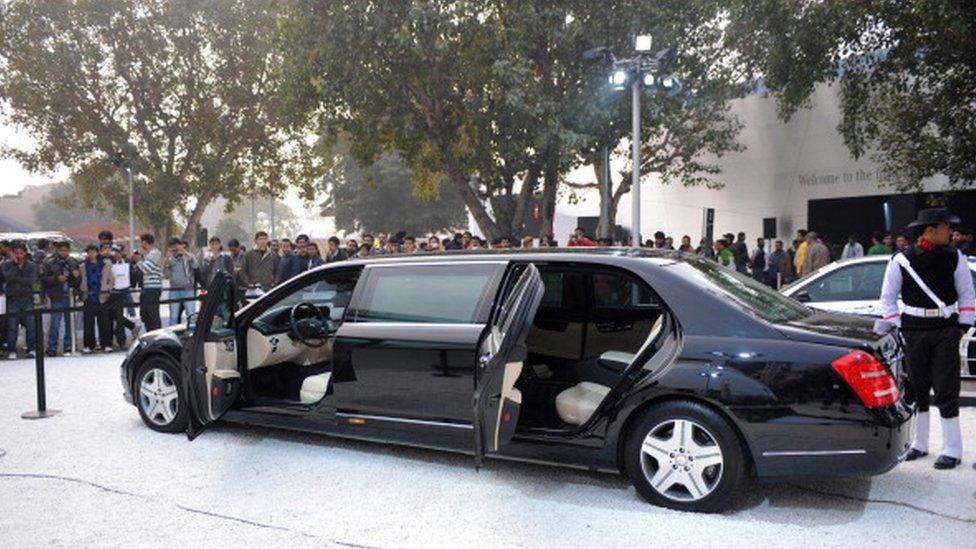
Two Mercedes-Benz S600 cars will be flown to Indonesia during the visit
Although it's quite common for monarchs and heads of states to travel with luxury goods and a huge numbers of people, for some Indonesians it's all quite lavish.
"A lot of Indonesian feel proud of King Salman and his luxurious lifestyle. I am more proud with our President Jokowi and his modesty," said one user on Twitter, referring to President Joko Widodo's famous man-of-the-people style.
He doesn't come very often
The last time a Saudi king went to Indonesia was in 1970, when King Faisal bin Abdul Aziz met President Suharto on his state visit to Jakarta.
King Salman's visit comes after President Widodo visited Saudi Arabia in 2015 to promote Indonesia as an investment destination.
"This is a very close, tight, and friendly relation," Indonesian Cabinet Secretary Pramono Anung told reporters last week.
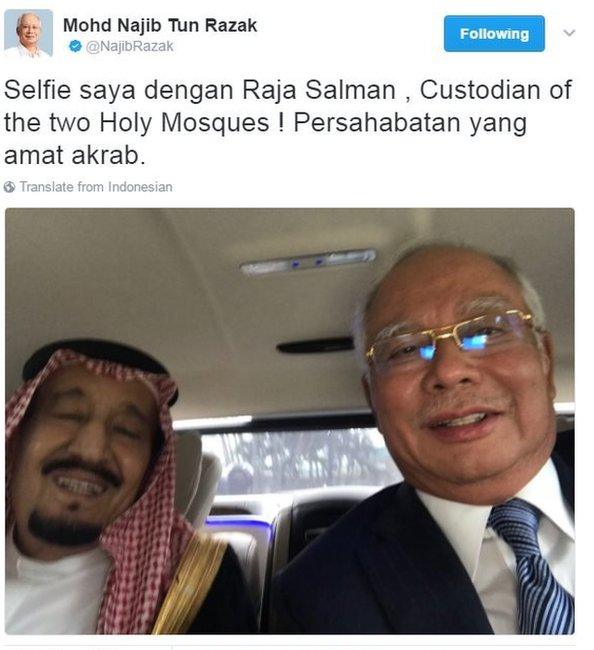
"My selfie with King Salman," said Malaysia‘s Prime Minister Najib Abdul Razak.
King Salman started the multi-nation tour on Monday in Malaysia, which his predecessor had visited more recently, in 2006. And he took a diplomatic selfie with Prime Minister Najib Abdul Razak.
The visit comes with big money
The Indonesian government has said the country will see about $25bn (£20bn) worth of investment during King Salman's visit. The deals that will be signed include an investment of $6bn by Saudi's oil company Aramco.
On Tuesday, Aramco signed a deal to invest $7bn into a Malaysian oil company.
King Salman's holiday trip to Bali island is also expected to boost national tourism.
"It is an extraordinary visit from Indonesian perspective," Zuhairi Misrawi, Middle East observer and a member of Indonesia's largest Islamic organization, Nahdlatul Ulama told the BBC.
"They will discuss many things from economy, culture, and tourism. What we need to see is how serious their commitment is to invest in Indonesia."
Read more on: Why does Saudi Arabia invest in South East Asia?
But there could be strings attached
While it may bring a lot of economic benefit to Indonesia, analysts say the Saudis are getting a lot out of it too.
As part of a diversification strategy, which is aimed at moving the kingdom away from its dependence on oil, Saudi Arabia has started to focus on pilgrimage services, which has now become the country's second most important industry after oil and gas.
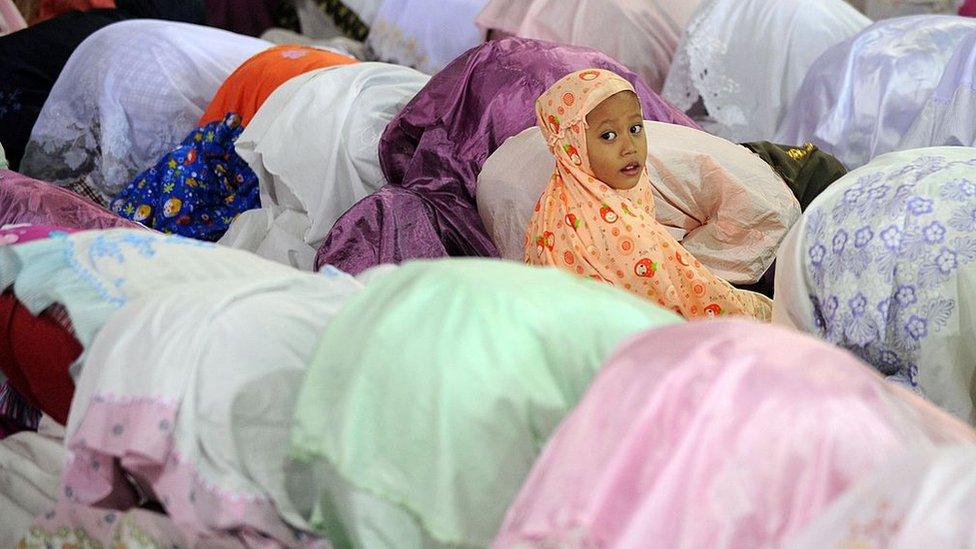
Indonesia is the world's largest Muslim-majority nation but mainstream Islam tends to be moderate and pluralistic
"Indonesia has already become the biggest income contributor for both the annual Hajj and the lesser rite of Umrah. Saudi Arabia has increased visa fees for Islamic pilgrims, but I don't think it will discourage Indonesians from going there," Zuhairi Misrawi explained.
Some Indonesians have also been expressing concern over Saudi Arabia's increasing religious influence on Muslim countries in the region.
Mr Misrawi echoed that sentiment.
"From Indonesia's perspective, we need to be careful not to swallow their concept of 'moderate Muslim' wholly, because what's considered moderate for Saudi is different from Indonesia.
"The Indonesian government needs to anticipate this. We need them to be firm to say to Saudi: Don't intervene in our ideology."
- Published28 February 2017
- Published27 July 2015
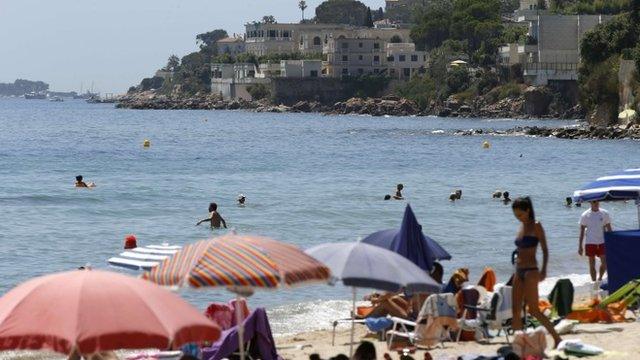
- Published22 January 2016
